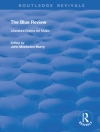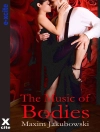Jane Eyre, by
Charlotte Bronte , is part of the
Barnes & Noble Classics
series, which offers quality editions at affordable prices to the student and the general reader, including new scholarship, thoughtful design, and pages of carefully crafted extras. Here are some of the remarkable features of
Barnes & Noble Classics:
- New introductions commissioned from todays top writers and scholars
- Biographies of the authors
- Chronologies of contemporary historical, biographical, and cultural events
- Footnotes and endnotes
- Selective discussions of imitations, parodies, poems, books, plays, paintings, operas, statuary, and films inspired by the work
- Comments by other famous authors
- Study questions to challenge the readers viewpoints and expectations
- Bibliographies for further reading
- Indices & Glossaries, when appropriate
Barnes & Noble Classics pulls together a constellation of influences—biographical, historical, and literary—to enrich each readers understanding of these enduring works.
Immediately recognized as a masterpiece when it was first published in 1847,
Charlotte Brontë ’s
Jane Eyre is an extraordinary coming-of-age story featuring one of the most independent and strong-willed female protagonists in all of literature. Poor and plain, Jane Eyre begins life as a lonely orphan in the household of her hateful aunt. Despite the oppression she endures at home, and the later torture of boarding school, Jane manages to emerge with her spirit and integrity unbroken. She becomes a governess at Thornfield Hall, where she finds herself falling in love with her employer—the dark, impassioned Mr. Rochester. But an explosive secret tears apart their relationship, forcing Jane to face poverty and isolation once again.
One of the world’s most beloved novels, Jane Eyre is a startlingly modern blend of passion, romance, mystery, and suspense.
Susan Ostrov Weisser is a Professor of English at Adelphi University, where she specializes in nineteenth-century literature and women’s studies. Her research centers on women and romantic love in nineteenth-century literature, as well as on contemporary popular culture. Weisser also wrote the introduction to the Barnes & Noble Classics edition of Persuasion.












